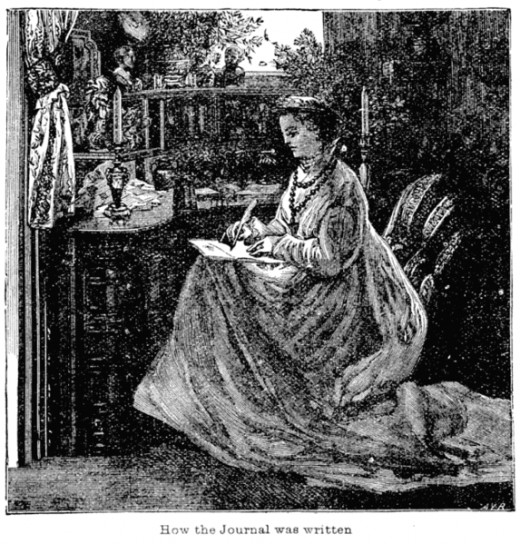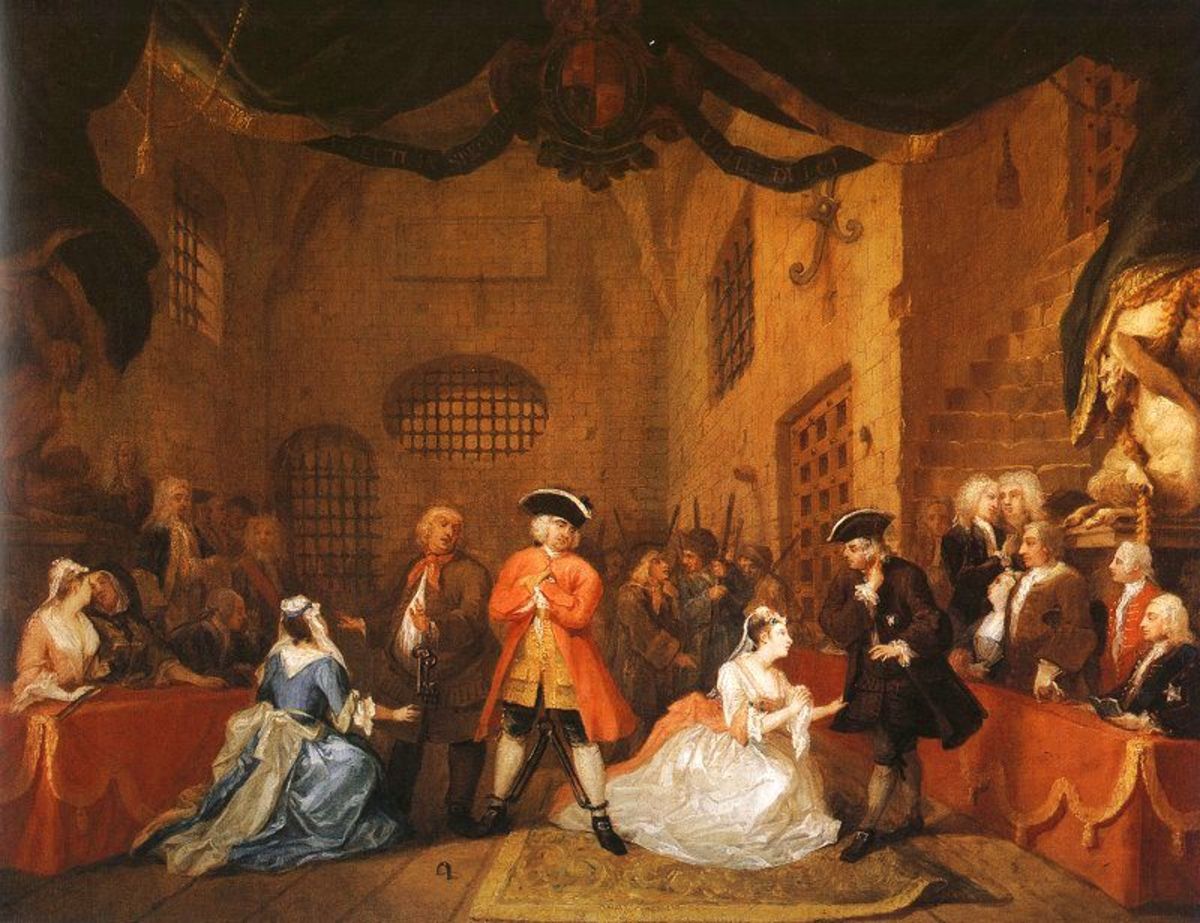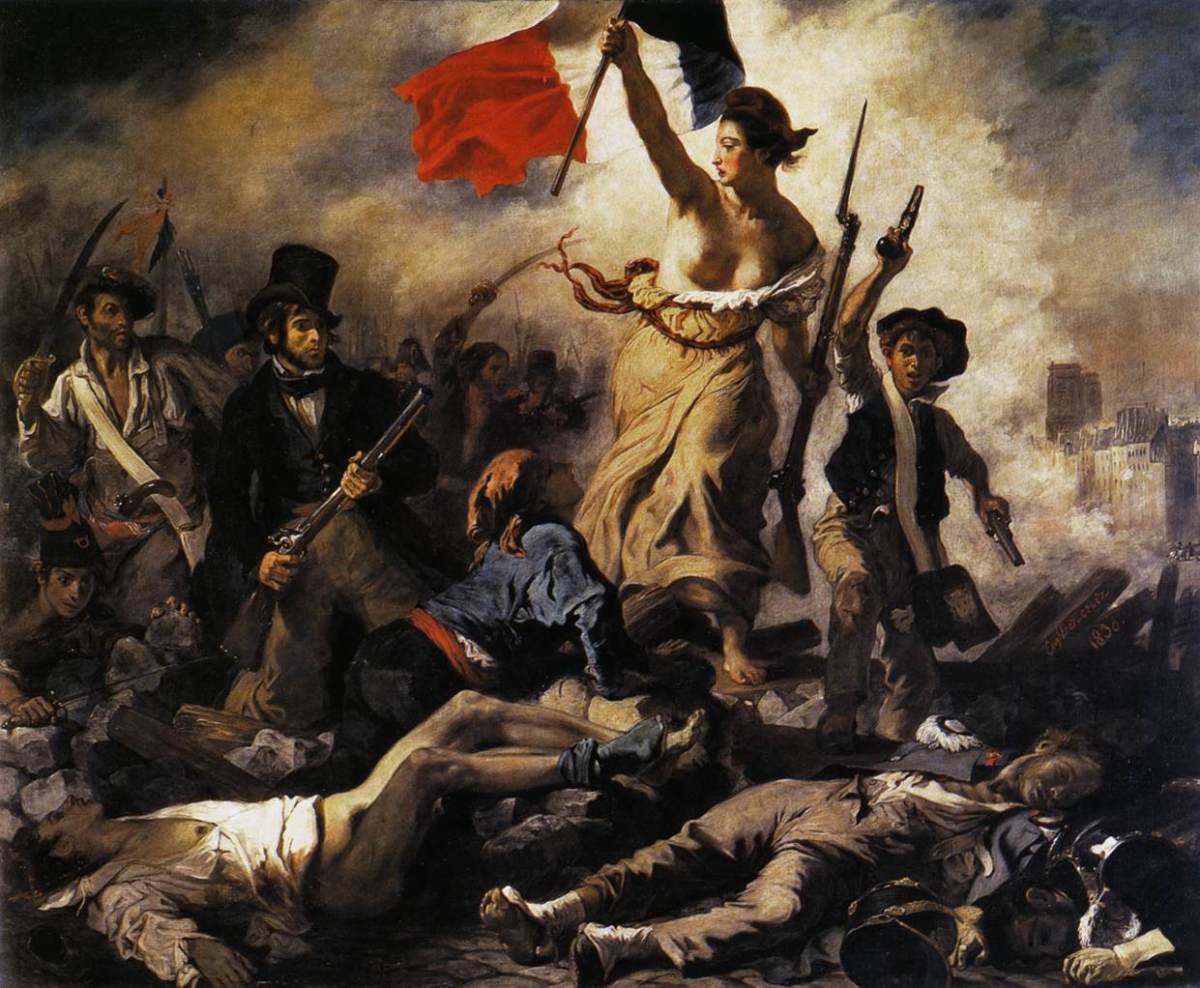- HubPages»
- Books, Literature, and Writing»
- Literature»
- Literary Criticism & Theory
Anne Hecht: The Hidden Discontent behind 18th Century Housewives

Anne Hecht’s “Advice to Mrs. Mowat” is a poem that outlines the domestic role of married women in the eighteenth century. It is made very clear in the poem that a woman’s place in a marital relationship at this time was within the home, subordinate to her husband. A notion which is repeated throughout the poem is that the wife’s sole duty is to maintain a comfortable home and to keep her husband at ease. This poem suggests that in order for an eighteenth century wife to fulfill her domestic responsibilities and subordinate position, she must suppress her own thoughts and feelings, particularly while responding to those of her husband. Essentially, the place of eighteenth century wives was to see to the needs of their home and family, often to the point of neglecting their own.
The poem instructs Mrs. Mowat, who in this case represents all eighteenth century wives, to maintain absolute composure in the face of troubling circumstances. She is expected to respond to common distress by hiding her frustration and feigning a calm demeanour:
Let sullen looks your brow ne’er cloud
Be always cheerful, never loud.
Let trifles never discompose
Your temper, features or repose. (53-56)
Essentially, she is expected to check herself rather than make it known when something is bothering her. Not only must she moderate her emotional reaction to distress; she is also expected to appear happy when she really feels like shouting, sacrificing the release of angry tension in exchange for the guise of composed temper. This notion also extends to any discontent she may feel toward her husband:
Never with woe his thoughts engage
Nor ever meet his rage with rage.
With all our sex’s softening art
Recall lost reason to his heart. (67-70)
The wife is again advised against expressing her true feelings; in this case, anger toward a quarrelsome husband. In both circumstances discussed above, the assertion is that women were expected to suppress any expression of strong negative emotion, and instead, project false positivity. The latter quotation goes one step further by suggesting that the wife’s self-moderation be coupled with the consolation of her husband, not to mention her own feelings.
The same notion of keeping her emotions hidden is also suggested for the turbulent and energetic phase of early marriage:
Some of our sex mistake in this;
Too anxious some – some too remiss.
The early days of married life
Are oft o’er cast with childish strife.
Then let it be your chiefest care
To keep that hour bright and fair;
Then is the time, by gentlest art
To fix his empire in your heart. (33-40)
During the stressful term of change at the beginning of a marriage, the wife is expected to maintain stability by pretending that she is unaffected by the stress of such a life-altering adjustment. Furthermore, it is held that the ultimate end to come of these early days is that her husband be positioned, in her mind, as kind of the household. It is advised in the poem for women not to venture outside of the home (57-58), which stands in general agreement to widely held notions of female domesticity at the time. On this topic, the poem proceeds to emphasize that in this state, the wife functions merely for the satisfaction of her husband: “If every thing at home be right / He’ll always enter with delight” (60-61). While adhering to her domestic role, the wife’s primary goal is toward the pleasure and comfort of her husband, rather than any personal fulfillment she may discover through involvement outside of the home.
The following list of wifely duties is fairly standard for the poem’s context:
To grace the home with prudent care
And properly to spend and spare,
To make her husband bless the day
He gave his liberty away,
To train the tender infant’s mind,
These are the tasks to wives assigned. (15-20)
It is the wife’s job to make the home comfortable for her husband and to take charge of ensuring that the children are properly raised and educated, but beyond its role as a task list, the language of this section reveals something of the wife’s personal situation as opposed to that of her husband. There is no indication that the husband is under any of the same pressure as the wife is in keeping his spouse satisfied with their marriage. This suggests that the woman did not have the liberty to give away in marriage that the man did, and that he is therefore not obliged to make it worth her while. In fact, the wife is expected to draw her primary fulfillment from her situation, despite how limiting it may be:
Small is the province of a wife
And narrow is her sphere of life,
Within that sphere to walk aright
Should be her principal delight. (11-14)
Therefore, a woman is expected to be satisfied with her place, rather than expect attention from her husband. A variation of this sentiment is expressed at the beginning of the poem’s conclusion: “From morn till noon, from noon till night / To see him pleased your chief delight” (83-84). It is the wife’s job to see to the pleasure of her husband, and for her pleasure to come from pleasing him, rather than whatever personal desires she might have.
The most striking evidence of the selflessness that married women were expected to exercise, which has already been somewhat touched on above, is the notion that they were to keep their thoughts and feelings to themselves and feign emotions that would most please their husbands. The language in the following quotation is clearly indicative of this: “To charm his reason dress your mind / Till love shall be with friendship joined” (43-44). She is explicitly instructed to adapt her way of thinking to that of her husband in order to reconcile any turbulence in their relationship. In other words, the wife had to change in order to be congruous with her husband and for him to be happy with her, while the husband was not expected to reciprocate for the sake of his wife. The clearest indication that the wife was expected to hide her true thoughts and feelings comes just before the concluding lines of the poem:
O shun that hated self,
Still think him wiser than yourself.
And if you otherwise believe
Ne’er let him such a thought perceive. (77-80)
The idea that the wife is to keep her thoughts to herself and act toward the comfort of her husband is incontrovertibly expressed here for she is clearly told that even though she may be smarter than her husband, she is never to breathe a word of it to him.
The place of married women in the eighteenth century is fraught with limitation, thankless labour, and hopeless subordination. The common denominator behind all of these factors is the silence in which she must live in order for everything around her to function properly. The irony of this situation is that while it is the wife who ensures harmony for the household and the ease of her husband, it is she who must remain imprisoned in silent dysfunction and dissatisfaction.
Works Cited
Hecht, Anne. "Advice to Mrs. Mowat." Canadian Literature in English: Texts and Contexts. Ed. Cynthia Sugars and Laura Moss. Toronto: Pearson Longman, 2009. 141-44. Print.






